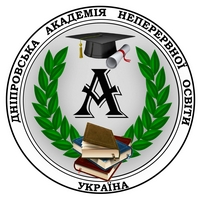MEDIA EDUCATION SPACE OF SOCIALIZATION IN THE MODERN PEDAGOGICAL PROCESS
Abstract
The article analyzes the peculiarities of the impact of the processes of media culture formation on educational processes in the context of the creating of media education space as a socialization environment on the basis of domestic scientific research. There is an increasing media-cultural determination of the space of human existence in the conditions of informatization of society and the spread of electronic media, which raises the problem of radical transformations of the entire process of socialization. Emphasizing the media component of the study of educational aspects of the problem of socialization in the information society gives reasons to consider the media-cultural space as the main component of the educational space which has the greatest impact on the space of human formation and existence. The sphere of culture as an environment of socialization is gradually turning into a media-cultural environment. The process of forming the media-educational space of socialization is a representation of the general trend of the development of electronic mass communications. The most remarkable feature of the media-educational space is the limitlessness in the physical-spatial relationship of opportunities for human development, which are expanding simultaneously with the further development of global mass media. It is proved that media and media culture in the conditions of the formation of a post-industrial society have turned into system-creating functions regarding the formation of the educational environment of human socialization, the result of mass media activity is the creation of a person's living space. This living space, based on the media educational space, actively contributes to the formation of individual and collective identities, influencing social practices and perceptions of the world. The media education space is not an abstract repository of media texts; specific people perceive it as a personal event, but as a set of such events - as their own life world. And this is what makes this space such an effective environment for socialization. For pedagogical studies of the socialization process, the integral quality of this concept is particularly important, i.e., the ability to comprehensively investigate the transformations of the socialization process both in the context of the interaction of various sociocultural phenomena of the postmodern era, and in the context of existing scientific traditions of studying the educational space.
References
2. Братаніч Б. В. Просторовий вимір медіа-освіти. Директор школи, ліцею, гімназії. 2015. № 1–3. С. 45–50.
3. Глушич В. В. Теоретичні основи впровадження медіатехнологій у сучасному освітньому просторі в Україні. Молодий вчений. 2022. № 4. С. 1–4.
4. Гриценко Є. О. Освітній медіапростір. Педагогіка та психологія. 2017. Вип. 57. С. 32–42.
5. Карпець Л. А. Сучасна освітня парадигма в контексті медіакультури. Актуальні проблеми філософії та соціології. 2015. Вип. 5. С. 95–98.
6. Медіа-освітній простір як середовище розвитку та соціалізації особистості у медіа-культурі. Директор школи, ліцею, гімназії. 2015. № 1–3. С. 97–102.
7. Подолякіна О. В. Освіта в реаліях медіа-простору: філософське осмислення перспектив. Освітній дискурс. 2020. Вип. 29. С. 15–23.
8. Фурсиков Т. В. Медіакультура сучасного фахівця освіти: монографія. Кропивницький: Ексклюзив-Систем, 2019. 383 с.
9. Черниш О. О. Молодь як об’єкт медіасоціалізації у закладі вищої освіти. Вісник Луганського національного університету імені Тараса Шевченка. Педагогічні науки. 2022. № 1 (2). С. 169–177.
10. Чорний В. Нові соціальні медіа та соціальні мережі в освітньому процесі. Військова освіта. 2018. № 1. С. 286–295.

 ISSN
ISSN  ISSN
ISSN 

